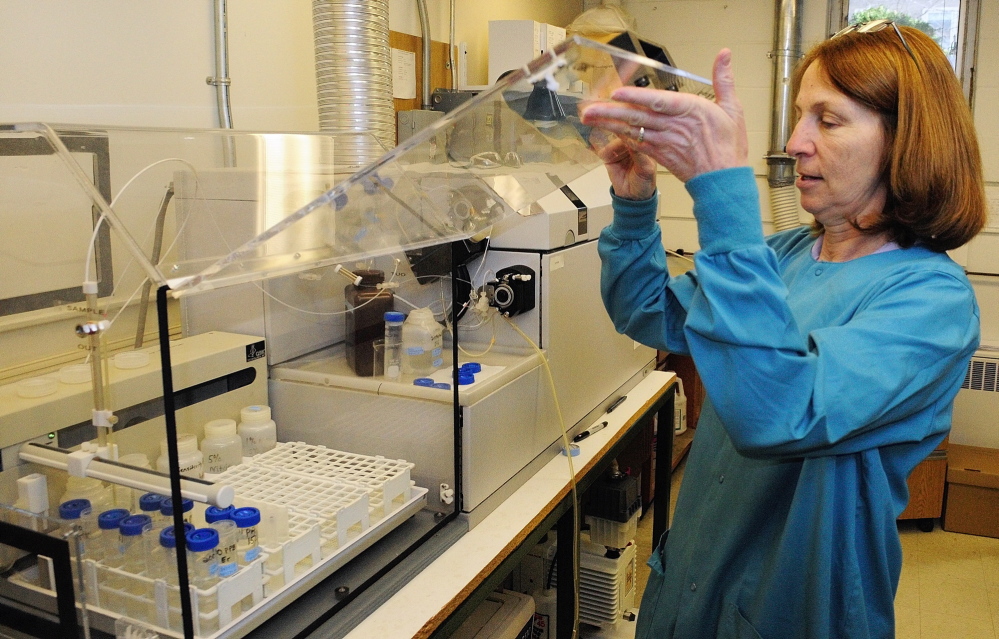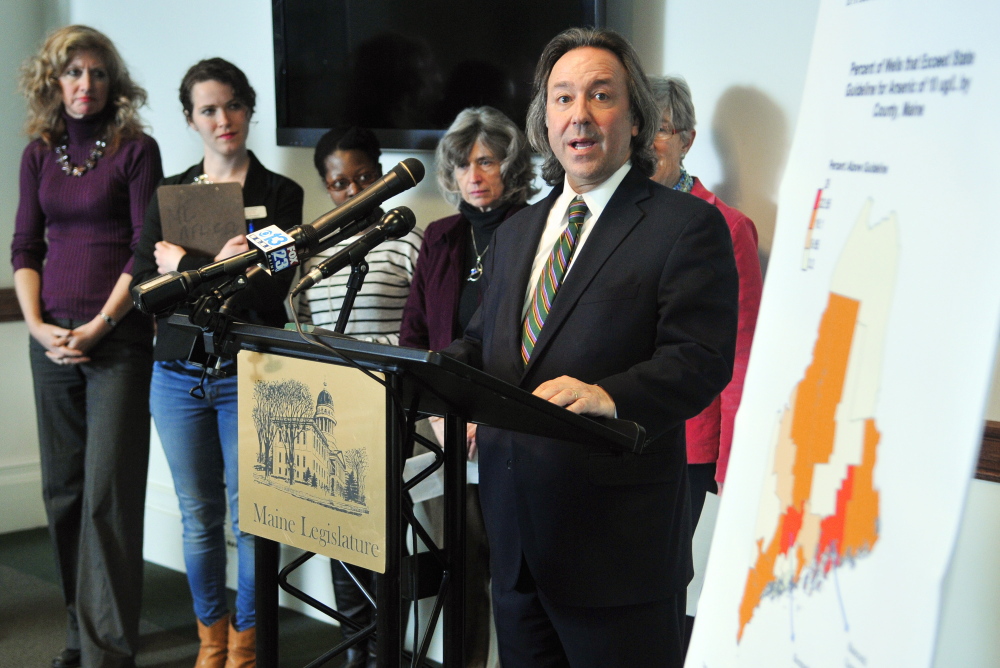AUGUSTA — Six Maine legislators are “discouraged and alarmed” by a LePage administration decision to end a grant bolstering well water testing for arsenic and other toxic chemicals, asking the state in a Tuesday letter to outline a plan to increase testing.
The letter to Maine Department of Health and Human Services Commissioner Mary Mayhew was a response to a July story in the Kennebec Journal detailing a decision to end a $300,000 federal grant won by the Maine Center for Disease Control and Prevention in 2013. It will end in August after supporting outreach for testing in Franklin, Hancock, Washington and Aroostook counties.
After a year, the department also ended a part of the program that provided more than 200 free test kits for chemicals including arsenic, a carcinogen that occurs naturally in much of Maine’s bedrock. Statewide, 150,000 people could be drinking from wells with higher concentrations than those allowed in public drinking water, according to a Dartmouth College study.
In the letter, three Democrats — Sen. Anne Haskell, of Portland; Sen. Chris Johnson, of Somerville; and Rep. Drew Gattine, of Westbrook — and three Republicans — Sen. Amy Volk and Rep. Karen Vachon, both of Scarborough; and Rep. Gary Hilliard, of Belgrade — say the state should “double down on our efforts” to fight chemicals, “not cut them short,” asking the department to respond by August with a plan to reach the state’s goal of getting 65 percent of wells tested by 2020.
The administration of Gov. Paul LePage, a Republican, has said that it will do outreach with existing resources and that elements of the federal grant were inefficient. It has cited a grant report that said in the first year, only 42 of 210 free test kits handed out under the grant were returned to a state laboratory.
In a statement, Mayhew said, “The state should not be competing with Maine businesses by using taxpayer dollars to hand out free products and services to people who can afford to pay for them.”
“Ironically, this news article generated by opposition to our efforts to streamline government will do more to generate awareness of the need for Mainers to get their well water tested than this government program would have done,” she said.
The number of Mainers who reported knowing whether their well had been tested increased from 26.5 percent to 45 percent between 2003 and 2012. That was one of the reasons cited by LePage when he vetoed a bill sponsored by Gattine that would have imposed fees on water tests conducted at a state laboratory to fund education programs.
That bill died, but in the two-year state budget passed this year, lawmakers added $200,000 in Maine State Housing Authority funding for loans and grants to low-income homeowners to remediate arsenic, a large problem particularly in Kennebec County, where 29 percent of wells tested higher from 2005 to 2009, more than in any other Maine county.
Kennebec County was the site of a five-year study of 272 schoolchildren in grades three through five released last year by Columbia University and the University of New Hampshire that found that exposure to even low levels of arsenic in water could lower IQ levels.
Hilliard, who represents six towns from Wayne to Rome that are affected by arsenic, said the LePage administration has put out “troubling messages” on the subject, asking “what about the other 55 percent of people” who haven’t had wells tested. He said he’s “concerned about going backwards” on arsenic without the federal money for outreach.
“I don’t think we’re anywhere close to a realistic goal, especially for hot spot areas, but for the rest of the state as well,” he said.
Send questions/comments to the editors.



